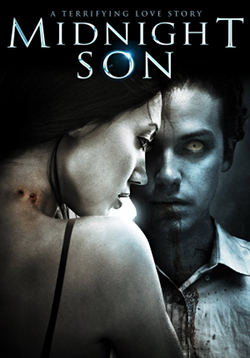Review: Frontier(s)
As a cinematic genre, horror is particularly interesting in its dynamism. Moving with the times and attitudes of its audiences, the inherent malleability of horror has allowed it to escape the same fate of recurrent downfalls and resurgences as, for instance, the western. A fascinating aspect in the enduring popularity of the genre is the universality of its sub-generic trends: the same paradigmatic shifts in Hollywood horror are found throughout international film. The stripped-down, gore-heavy, excessively violent and sadistic fare which has characterised contemporary American horror output has become increasingly evident in world cinema, and particularly so in France’s Frontier(s).
Set against the backdrop of the 2005 Parisian riots, Frontier(s) begins with a gang of thieves taking advantage of the ensuing chaos. When one of their rank is gravely wounded, the others agree to bring him to a hospital before themselves fleeing to the countryside, where they take refuge in an inn run by an unusual family.
The rooting of Frontier(s) in real-world events immediately suggests that the film will, in some shape, offer a commentary upon the modern world; indeed, the opening moments do much to affirm this suspicion, the characters well-established, their rationales understandable, their relationships realistic and engaging. Yasmine, our primary protagonist, is pregnant, her last promise to her brother—the wounded member of the gang whom she is forced to leave behind—to keep her child and give it a better life away from the chaos which surrounds them. A compelling premise in itself, the idea fuses well with that of the societal unrest to present the foundation of a critique of the predominant politics which drive people to such rebellion. Alas, and unfortunately, it is a foundation which is never built upon by the film, the arrival at the aforementioned inn coinciding with the downturn into excessive and ecstatic indulgence in scenes of deprivation, degradation, mutilation, and murder. The characters to whom the film has endeavoured to emotionally attach us are slaughtered variously one by one, the sadistic violence with which they are dispatched apparently employed in service of entertainment. What entertainment is to be garnered from staged sequences of bloodlust and depravity is entirely mystifying, such things neither enjoyable nor scary, merely morally bankrupt and repugnant. It seems almost facetious to criticise the narrative of a film which deals so heavily in unwarranted and unreasoned violence for violence’s sake, yet mention must be made of the countless genre clichés which comprise the plot—such that it is—and the bored sensation of déjà vu which rapidly ensues as we witness the filmmakers’ horror-movie-by-numbers checklist gradually ticked: the mutated sibling; the incestuous affair; the Nazi heritage; the friendly driver who rescues our heroine, only to reveal himself as one of the cast of villains. It is all but a feeble framework with which to loosely connect the scenes of tedious torture and rape. Such utterly meritless nonsense is no stranger to the screen, but in the case of Frontier(s) it is, as a failure to deliver upon an initially promising premise, particularly disappointing.
Frontier(s) is perhaps best summarized in the old sentiment ex nihilo nihil fit: nothing comes from nothing. A film wholly devoid of any central thesis, argument, or morality with which to justify the offal—both literal and cinematic—which spews forth from it, it offers its audience nothing in return for their time, insufficient even to incite anger at how utterly meaningless it all is.
-
http://twitter.com/NextProjection Christopher Misch










 Cult Pics and Trash Flicks: Vulgaria (2012)
Cult Pics and Trash Flicks: Vulgaria (2012) Review: End of Watch (2012)
Review: End of Watch (2012) Review: Dredd 3D (2012)
Review: Dredd 3D (2012) Yeonghwa: Korean Film Today: In Hong Sang-soo Country
Yeonghwa: Korean Film Today: In Hong Sang-soo Country



